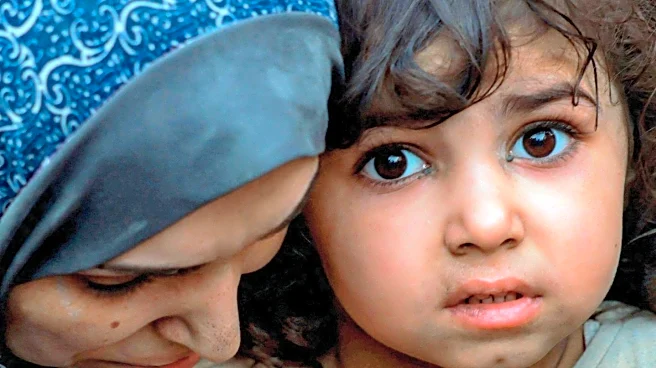What's Happening?
The World Health Organization (WHO) has warned that the health crisis in Gaza will have long-lasting effects, potentially impacting generations. Dr. Tedros Adhanom Ghebreyesus, the WHO's director-general, emphasized the need for increased aid to address
the complex health needs of Gaza's population. Despite a ceasefire between Israel and Hamas, aid levels remain insufficient to rebuild the territory's healthcare system. The situation is exacerbated by famine, injuries, and disease outbreaks, compounded by restricted access to humanitarian aid.
Why It's Important?
The health crisis in Gaza highlights the severe humanitarian challenges faced by the region, with implications for regional stability and international relations. The ongoing conflict and inadequate aid delivery threaten the well-being of millions, potentially leading to long-term socio-economic and health consequences. The situation underscores the importance of international cooperation and effective humanitarian response to prevent further deterioration. The crisis also raises ethical concerns about the use of aid as a political tool and the need for unimpeded access to essential supplies.
What's Next?
The international community may increase pressure on Israel to allow more aid into Gaza, while humanitarian organizations continue to advocate for unrestricted access. The U.S., having brokered the ceasefire, may play a role in ensuring compliance with the agreement and facilitating aid delivery. The situation in Gaza will likely remain a focal point for international diplomacy and humanitarian efforts, with potential implications for future peace negotiations and regional dynamics.
















